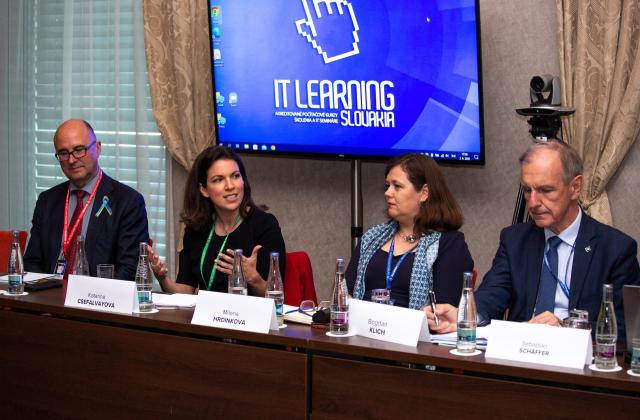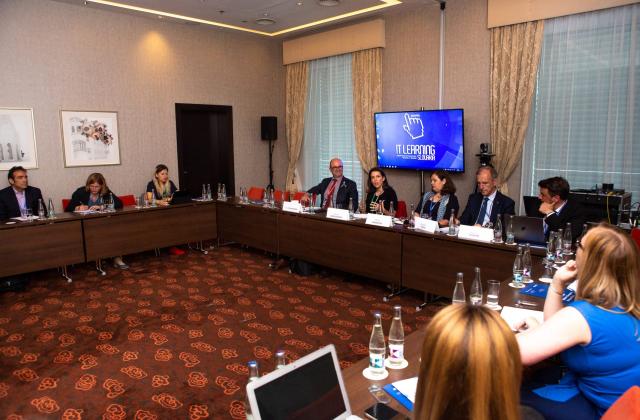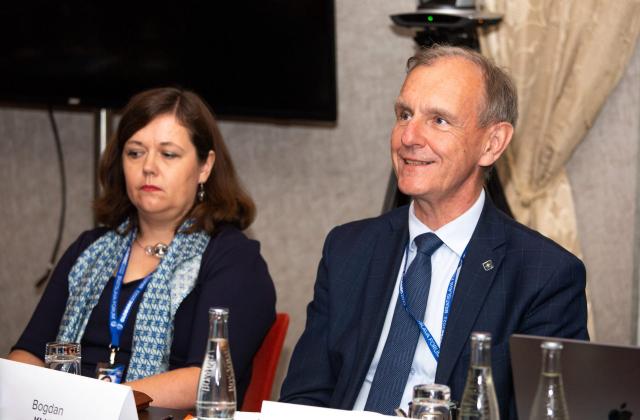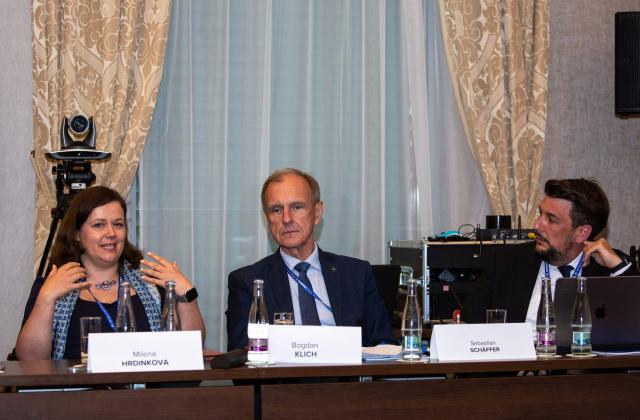Summary of Event: What’s Next for Europe? From the Conference on the Future of Europe to a New Reality
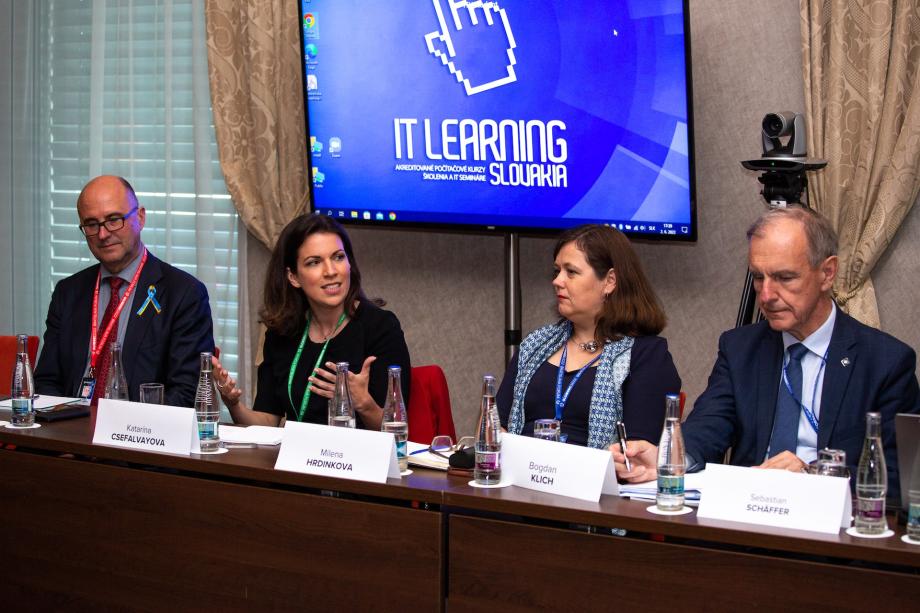
On the sidelines of the GLOBSEC Bratislava Forum, GLOBSEC in cooperation with the Institute for the Danube Region and Central Europe (IDM) organised a discussion about the outcomes of the Conference on the Future of Europe (CoFoE) to evaluate the general success of the initiative and whether such a format of citizen engagement is effective.
Speakers:
- Katarina Csefalvayova; Director; Institute for Central Europe;
- Milena Hrdinkova; Former State Secretary of European Affairs of the Czech Republic;
- Roland Freudenstein; Vice President and Head of GLOBSEC Brussels, Belgium;
- Bogdan Klich; Chairman; Foreign and European Union Affairs Committee; Senate; Poland.
Moderator:
- Sebastian Schaeffer; Managing Director; Institute for the Danube Region and Central Europe (IDM).
During the discussion, speakers addressed the successes and shortcoming of the Conference. They emphasised that the idea was worthy but returned to the question of the follow up/the implementation of the results. If to summarize the whole report on the CoFoE in one sentence: People want more Union.
There are particular areas in which Europeans want to see better cooperation and integration and, if possible, a reform of the treaties:
- Health policy, with an expectation of the EU to create a coherent health policy, with the EU and MSs sharing responsibilities.
- Democratic efficiency with the direct forms of democracy were presented such as decision-making processes via referendums.
- Climate policy and energy independence, especially after the start of the war in Ukraine are clearly on the agenda.
- The rule of law was taken very seriously, but there was a critical view on behalf of the more conservative participants; however, most participants agreed on the need to reform Article 7 of the Treaty, and extend the role of the judiciary mechanism, not only focused on the budget, but also the independence of the judiciary.
- Migration
- Defence and Security with high expectations about the EU strategic autonomy and a European army but no discussion on existing mechanisms (e.g., PESCO), because they are not well known by the society.
The speakers stated that the missing knowledge about the EU, in general, leads to disinformation and prejudice. The EU myths continue to live on, while youth takes EU membership for granted and often does not understand its value—exposing the continued need to focus on education and the EU youth.
Speakers also addressed the flaws of the format. They expressed disappointment about the results of the report because it did not fully correspond to what they heard from the citizens. Besides, the representability of the outcomes can be questioned, as far as, the discussions had a very small reach scale, hardly one-tenth of the EU population due to the lack of knowledge about the Conference. It was difficult to discuss technical elements with the citizens without proper preparation. In the report, many ideas are related to how the EU should be, but they do not propose solutions. On the whole, many of the proposals are not a novelty but already discussed among member states and EU policymakers.
The question “What is next?” has turned into the highlight of the speakers’ debate. Citizens clearly identified that they want EU politicians to find a way to pursue changes. From the Conference final report, it is evident that a change to the treaty is desirable. On the contrary, however, many proposals can be implemented without the change of the treaty; thus, experts proposed to start with these ideas and then change the treaty when possible. In the process, no prioritization of procedures over policies should be allowed because policies are key, they make people’s lives better. In conclusion, the experts agreed that the CoFoE is a helpful tool for civil engagement. Citizens, especially the youth, should be consulted constantly. The question remains: what would be the follow up by the policymakers and what would then be next for Europe.
